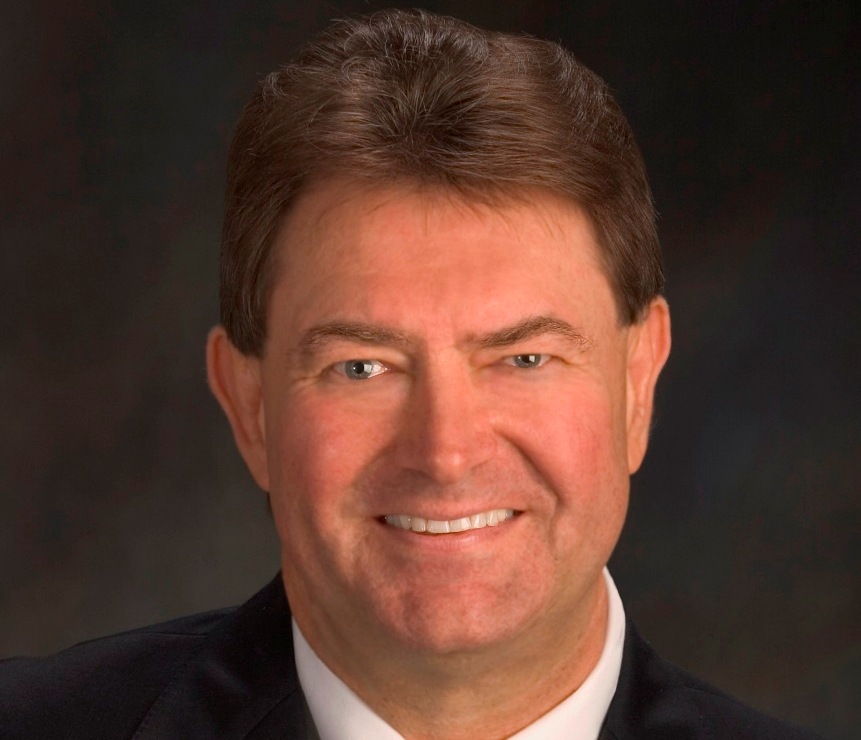Every Radio Station Can Become a TV Station, Says CBS' Dan Mason

Dan Mason has taken over as president of the CBS Radio division at an exceptionally challenging time. Putting on the best possible face and tackling the myriad issues facing radio with a positive outlook is the role and responsibility of a corporate executive. But Mason also has the task of working for two task masters - Les Moonves and Sumner Redstone - who are not inclined to tolerate either poor performance or artificial hype.
Mason took over as president when Joel Hollander departed earlier this year and quickly moved to respond to the losses of both Howard Stern and Don Imus, whose departures not only made headlines but created disruption across a radio industry that is struggling to respond to satellite radio, Internet radio and downloads, MP3, a music industry in chaos, new radio HD technology, and competition from multiple new sources. Basic terrestrial radio might be the last of the truly "free" media available (requiring no costly equipment, upgrades, content subscriptions or on-demand fees), but local ad revenues have been eroding and the industry has struggled to define its core mission and place in the information/entertainment hierarchy.
 Dan Mason |
Mason's most visible move has been the transition of the company's flagship FM station, New York's WCBS-FM, away from the failed "Jack" strategy to its historic roots in classic oldies. "It's amazing how easy it is to program #1 top 40 records. The format allows us to package several music genres and make it sound really good," he says. Along with the oldies format, Mason and station management also brought back several legendary New York disc jockeys to recapture the original station sound in an updated format. "It was not only the music but this was a personality driven local medium. There was no doubt when the 'Jack' format came on that people went to XM and Sirius," Mason acknowledges. "Cousin Brucie went there. Listeners couldn't get the oldies product. But every day we get more and more feedback saying they're coming back to us."
In an exclusive interview with Jack Myers Media Business Report, Mason argued that WCBS-TV could rewrite rule book on how important local radio is to the community. "Radio is the most powerful local medium there is," he affirmed. "It has the ability to call people to action with a swiftness no other medium can claim. Announcers can reach out and touch people. Too often, the personality aspects of radio get lost. WCBS-FM is a station that blatantly and passionately was a part of New York City. That's what radio needs to do in every market."
"Radio has an ability to emotionally connect with listeners, and personalities have a back and forth interactivity with listeners," Mason commented. He believes this ability is uniquely local, pointing out only three national personalities have successfully established that level of audience connection: Arthur Godfrey, Rush Limbaugh and Howard Stern. "It's not to say other shows aren't successful," he added, "but they don't make emotional connections like those three shows. Radio is still a local medium."
Mason believes CBS has done an effective job locally in New York replacing Stern and Imus, admitting "other stations need similar fixes but there is no one-size-fits-all solution. Focusing on the premise of local content for local radio prevents you from making decisions that affect 20 stations at a time," he explains. A major issue impacting programming is CBS' decision to move away from programming to 12 to 24 year olds because ad agencies have shifted buys away from the demo due to increased use by that demo of Mp3, iPod and Internet radio. However, the same technologies are positively impacting radio in reaching younger demographics with other formats.
"A station like [New York's all-news] WINS, that has a 35 to 64 terrestrial audience," Mason points out. "now sees strong numbers in younger demos as the station is cultivating a younger news audience online. For years we tried to figure out how to make the product compatible for the audience, but the issue was the platform, not the content. Now that they can receive it on other platforms, they are finding it. In the near future, every radio station will have the ability to become a TV station. We will see webcasts and webisodes. There's no reason we can't have our own webcast shows with talent [in the same way Imus was simulcast on MSNBC]. Radios will soon be developed with TV screens. The terrestrial radio medium will evolve and occupy more share of the digital space." CBS' 670 The Score (WSCR-AM) has partnered with Paltalk to enable listeners to participate in live, interactive video streams of the station's popular weekday sports talk shows. Listeners can see the on-air personalities live in the studio as well as other listeners who are streaming video of themselves. In addition, listeners interact with the hosts and each other through text, audio and video. (www.670thescore.com).
Mason claims "CBS' digital revenue has been doubling every six months, but he admits it's a message that is not yet resonating with the investment community. Once we show by specific example how radio can be visualized through the internet, a light will go off and investors will understand," he believes. Marci L. Ryvicker of Wachovia Capital Markets comments "While CBS continued to gain share in NY and Chicago, it suffered year-to-year and sequential declines in L.A. We are not concerned, however, given that Dan Mason is already making worthwhile changes. For example, CBS' switch back to K-ROCK from FREE-FM in the NY market has already resulted in significant gains. We anticipate further format changes and associated rating gains as the year goes on and expect to see such results reflected in revenue growth in early'08."
CBS will launch its new TargetSpot service in top ten markets and selected stations in other markets later this year, offering local advertisers the capability to develop and place their own streaming commercials on station websites. In development for over a year, TargetSpot is a partnership with Oddcast and is being spun out as an independent business headed by CEO Doug Perlson. TargetSpot appears to be similar in context to SpotRunner, which acts as a TV ad agency for local retailers.
CBS has been successful developing integrated multi-platform media campaigns, including the www.attblueroom.com campaign; a General Motors' ambassadors program that features local station talent about their experiences driving GM cars. Each talent drives a different GM car for two weeks a month for nine months and then talks about it on-air.
To contact Dan Mason e-mail him at dmason@cbs.com.


